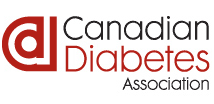Frequently Asked Questions
What is the 21 Day Challenge to End Diabetes?
The 21 Day Challenge to End Diabetes challenges you to form a new healthy habit over 21 days in a row to raise vital funds to help end diabetes.
How do I sign up?
Registering for the 21 Day Challenge to End Diabetes is FREE and it couldn’t be easier! Sign up and follow the simple steps to create your personal fundraising page. Once you’re signed up, you can login to customize your participant centre, manage and track donations, send emails to your friends and family, and more!
Can I join or form a team?
Absolutely. In fact, we encourage it! If you haven’t signed up yet, you can start a new team or, you can sign up to join an existing team. Starting new habits are always easier when you’re with friends and it’s a great way to hold each other accountable!
How will my donations be used?
Every dollar is gratefully received and invested in world-leading
Canadian research, giving children with type 1 diabetes a life-changing
experience and connections at our D-Camps, and helping the 11 million
Canadians with diabetes and prediabetes live healthier lives through
educational programs and support services.
Is my donations tax-deductible?
Yes. You will receive a tax deductible receipt. Online donors will receive their receipts shortly after the donation is made as a downloadable PDF in their confirmation email. Offline donations (cash and cheque) will receive their receipts by regular mail in early 2017. CDA will automatically issue a mailed receipt for gifts of $15 or more or upon request.
To whom do I make out cheques
Please make cheques payable to: The Canadian Diabetes Association
Send cheques to:
Attn: 21 Day Challenge Canadian Diabetes Association
1400-522 University Ave.,
Toronto, ON
M5G 2R5
Please be sure to indicate this donation is for the 21 Day Challenge and include the participants name if applicable.
How can I be entered to win a $100 VISA gift card?
If you register for the 21 Day Challenge to End Diabetes and/or fundraise a minimum of $150 by December 14, you will be entered to win a $100 Visa gift card. *For more information and contest rules, click here.
Participants
I’ve signed up, how do I view my profile page?
After you’ve logged in to your 21 Day Challenge to End Diabetes account, you’ll be directed to your profile page. You can login here now.
We've created a participant centre guide to help you maximize your success through your participant centre!
How do I receive donations or encourage others to donate?
Once you’ve signed up, you’ll receive your very own 21 Day Challenge to End Diabetes personal fundraising page. This page has a unique URL you can share with family, friends, and colleagues and they can make their donation online easily and securely.
I’ve forgotten my username and/or password?
No problem. Reset your password here now.
Diabetes
What is diabetes?
Diabetes is a complex disease with multiple causes and no known cure. Diabetes is a disease in which the body cannot produce insulin (type 1) or cannot effectively use the insulin it produces (type 2). Insulin is a hormone that controls the amount of glucose (sugar) in the blood. Diabetes leads to high blood sugar levels, which can damage organs, blood vessels and nerves. The body needs insulin to use sugar as an energy source.
What is type 1 diabetes?
Type 1 diabetes is found in five to 10 per cent of Canadians with diabetes, and occurs when the body is unable to produce insulin, a hormone that controls the level of glucose (sugar) in the blood. The cause of type 1 diabetes is unknown and it is not preventable. It most commonly begins in childhood and occurs when a person’s immune system destroys the cells in the pancreas that make insulin.
What is type 2 diabetes?
Type 2 diabetes is the most common, where the pancreas either cannot effectively use or produce enough insulin. It is found in approximately 90 per cent of Canadians living with diabetes. The causes of type 2 diabetes can be genetic, behavioural and/or environmental. It usually develops in adulthood, although more children and adolescents are being diagnosed, especially those in high-risk populations, such as Aboriginal Peoples and those of African, Asian, Hispanic or South Asian descent.
What is prediabetes?
Prediabetes occurs when an individual’s blood glucose levels are elevated, but not yet high enough to be diagnosed as type 2 diabetes. Approximately 50 per cent of those with prediabetes will go on to develop type 2 diabetes.






